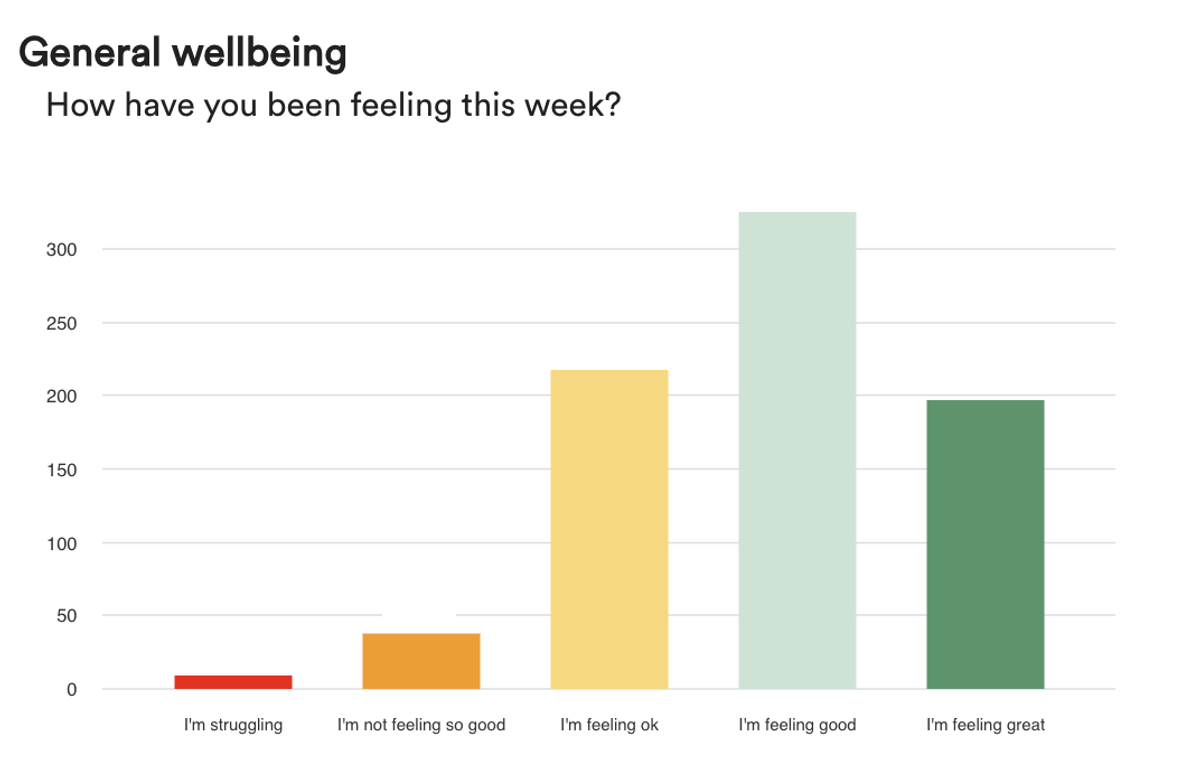Wellbeing

Student wellbeing contributes to a students’ positive mental health, readiness to learn and positive academic outcomes. When students experience positive wellbeing they are more likely to be able to attend school, focus during lessons, retain and recall information, engage with their peers and teachers and participate in school life beyond the classroom. Students who are struggling with their wellbeing may be less inclined to be at school and find it harder to concentrate during lessons, learn new information and engage with their peers and teachers.
In contrast, when students feel disconnected from their community, experience limited success at school and are in consistently poor health, they are more likely to experience negative emotions and low wellbeing. In these cases, students may identify that their wellbeing is ‘not so good’ or that they are ‘struggling.’
This week’s PIVOT Wellbeing for Learning Check-in data indicates the dynamic and complex nature of student wellbeing and is evident in the following graph.
Wellbeing team members are regularly following up with students at school who require wellbeing assistance. In partnership, we encourage our families to have ongoing wellbeing focused conversations with their daughter/s. To facilitate a wellbeing discussion, a range of wellbeing strategies and services are located in the College Diary within the wellbeing tab. Further wellbeing information can be sourced at SchoolTV.
Mrs Sonya Peters
Leader of Wellbeing

